
by pestcontrolseos | Dec 22, 2024 | Blog, Pest Info & Articles
As a safe and efficient natural pest management method, orange oil has grown in popularity. It is derived from orange peels and includes d-limonene, a potent active component that effectively eradicates pests. Orange oil treatment has quickly gained popularity among homeowners looking to maintain their premises pest-free due to its non-toxic and environmentally favorable qualities. Let’s look at how to apply orange oil to different areas of your house to keep it safe and pest-free.

How Orange Oil Works in Pest Control
Orange oil works by targeting the systems of pests directly. Insects are eliminated as a result of its d-limonene component dissolving their outer coats. Because it doesn’t utilize dangerous chemicals as conventional pest control methods do, it’s safer to use in homes. This makes orange oil especially effective for treating specific pest problems in localized areas.
Why Choose Orange Oil?
- Eco-Friendly: It is a sustainable alternative that lessens dependency on artificial pesticides because it is made from orange peels.
- Safe Around Kids and Pets: Because orange oil is non-toxic, it can be used in places where kids or pets are present.
- Wide Range of Applications: In addition to termites, it works effectively for other pest issues including ant infestation.
Applications of Orange Oil in the Home
1. Wooden Furniture and Structures
Your home’s wooden surfaces, including flooring, beams, and furniture, are frequently susceptible to termite infestations. In order to combat termite activity in these places without having to disassemble or remove wood, orange oil is frequently used.
How to Apply Orange Oil to Wooden Areas
- Look for obvious termite damage, small holes, or hollow noises in the wood.
- To enable the oil to deeply permeate the wood where termites live, drill tiny holes in the afflicted region.
- Inject orange oil into these holes using a syringe or applicator.
This process targets the colony directly, eliminating termites while keeping the wood intact. Regular inspections and applications can help prevent future infestations.
2. Baseboards and Wall Cracks
Baseboards and wall crevices are common entry points for pests. Applying orange oil here helps seal off these areas from pests and prevents further infestations.
Steps to Treat Baseboards and Walls
- Use a spray bottle filled with orange oil or a diluted mixture of it.
- Spray along the edges of baseboards and any visible cracks in walls.
- Pay attention to locations where you have seen bug droppings or trails.
Orange oil’s zesty perfume not only serves as a repellant but also infuses your house with a revitalizing scent.
3. Kitchen and Pantry
Given the presence of food and water, the kitchen is among the most pest-prone spaces. Pests like cockroaches and ants frequently enter these areas. Orange oil is a natural and healthy way to protect sensitive regions.
Using Orange Oil in the Kitchen
- To make a cleaning solution, combine a few drops of orange oil with water.
- To keep bugs away, mist cupboards, shelves, and countertops with the solution.
- Particular care should be paid to locations where pests prefer to congregate, such as food storage spaces, garbage disposals, and sink drains.
This technique guarantees that your kitchen surfaces stay chemical-free and clean while also keeping pests away.
4. Outdoor Wooden Structures and Spaces
Termites and other pests can infiltrate outside spaces such as patios, fences, and garden furniture in addition to the interior of your house. Orange oil is an excellent treatment for protecting these structures from pests.
How to Use Orange Oil Outdoors
- Directly apply orange oil on deck surfaces, fences, and wooden patio furniture.
- To deter pests, spray near trash cans, compost piles, and outside cracks.
Frequent application establishes a barrier of defense, keeping pests out of your outdoor areas.
5. Floors and Carpets
Although not their first target, some pests like ants and fleas may invade floors and carpets. To get rid of bugs and keep them away, apply orange oil to these places.
Steps for Floors and Carpets
- In a spray bottle, combine a tiny bit of orange oil with water.
- After lightly misting the impacted areas, let them dry.
- Sprinkle baking soda and a few drops of orange oil over carpets, let them sit for a bit, and then give them a good vacuuming.
This approach helps maintain a pest-free floor area while keeping the air fresh.
Benefits of Orange Oil for Your Home
Orange oil is highly effective and offers multiple benefits:
- Localized Treatment: It may be applied exactly where it’s needed, which lowers the possibility of overuse.
- Natural and Safe: It is a safer option for your house because no dangerous residues are left behind.
- Pleasant Scent: In contrast to conventional insecticides, orange oil leaves behind a pleasant, natural citrus scent.
Orange Oil Applications to Protect Your Home from Pests
Orange oil is a natural, safe, and adaptable way to get rid of pests in your house. Its application is simple and efficient, whether you’re battling termites in your hardwood furniture, ants in the kitchen, or safeguarding your outdoor areas. Orange oil treatment is a wise option for homeowners who wish to repel pests without using harsh chemicals because of its eco-friendly qualities and attractive aroma. Make use of it to make your house safer, cleaner, and pest-free.
Choose Dr. Termites for natural, effective pest control solutions! Our orange oil treatments are tough on pests and safe for your family. Call now for a home free from termites and ants!
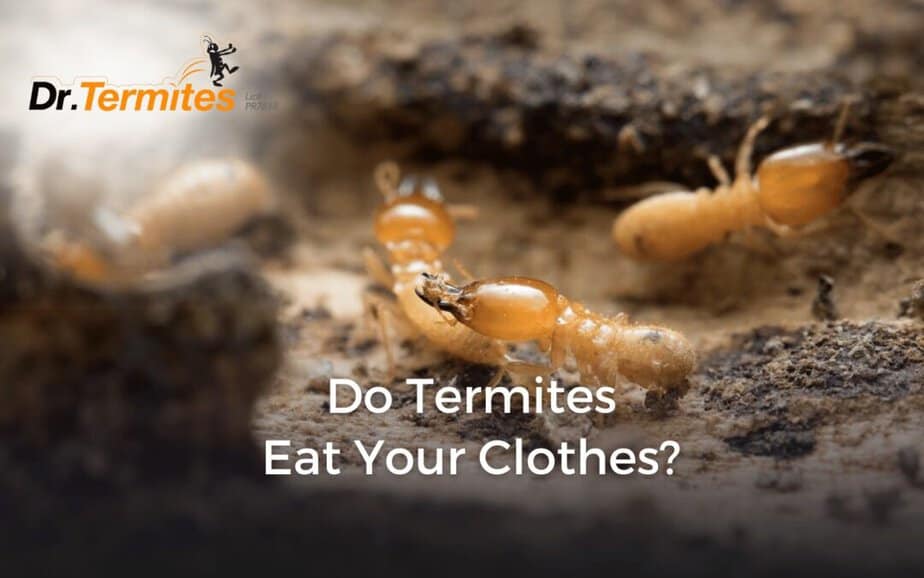
by pestcontrolseos | Dec 13, 2024 | Blog, Pest Info & Articles
Termites are primarily known for causing damage to wood and other cellulose-based materials. Many homeowners wonder if these pests can also eat their clothes. While termites mainly feed on wood, there are some important things to understand about how they interact with your belongings. In this post, we’ll clarify whether termites are a threat to your clothes and how you can protect your home from potential damage.

Can Termites Eat Clothes?
Termites don’t typically eat clothes, but there are exceptions. These pests feed primarily on cellulose found in wood, paper, and some fabrics. Most common clothing materials, like cotton, wool, and synthetics, don’t contain enough cellulose to be attractive to termites. However, natural fibers like silk or linen may contain small amounts of cellulose, potentially drawing termites in if they are stored near wooded areas where termites are active.
Why Don’t Termites Eat Most Clothes?
Termites primarily feed on cellulose-rich materials like wood and paper. Common clothing materials like polyester, nylon, and acrylic are synthetic and contain little to no cellulose. As a result, these fabrics are not a food source for termites. While natural fibers may contain small amounts of cellulose, termites are unlikely to target them unless they are stored near heavily infested wooden areas.
What Do Termites Eat?
Termites are specialized insects that consume cellulose, a complex carbohydrate found in plant-based materials. Their digestive systems are equipped with microorganisms that help break down cellulose into simpler sugars. Wood, paper, and cardboard are their main food sources, but certain fabrics made from natural materials may also attract them under the right conditions.
Do Termites Affect Synthetic Fabrics?
Synthetic fabrics like polyester, nylon, and acrylic do not contain cellulose, so termites will not be attracted to them. However, termite damage to wooden structures in your home could lead to moisture issues, and that moisture could indirectly damage clothing. For instance, water leaks or mold caused by termites can affect your fabrics, even if termites themselves don’t directly target your clothes.
How Can Termites Harm Your Property?
While termites may not directly eat your clothes, they can still cause significant damage to your property. Termites feed on wood, weakening the structural integrity of your home. In severe infestations, termites can cause extensive damage to walls, floors, and furniture. Termite damage can lead to weakened beams, ceilings, and support structures, which can indirectly affect your belongings.
Moisture and Mold Risks
When termites consume wood, they often introduce moisture into the environment, creating conditions where mold can thrive. Mold can spread quickly onto clothing, causing discoloration, odors, and fabric damage. This means that while termites may not target clothes directly, their presence can still lead to conditions that harm your belongings.
How to Protect Your Clothes From Termites?
While termites are unlikely to eat your clothes, it’s still important to take steps to protect your belongings. Preventing termite damage involves addressing moisture issues and keeping your home free of termites.
Store Clothes Properly
Store clothes made from natural fibers, like wool or silk, in sealed plastic bins or garment bags. This can help protect them from exposure to termites, especially if your home is susceptible to infestations. Keep your clothes in areas that are not near wooden structures or attics and basements where termites are more likely to be active.
Regular Inspections
Regular inspections of your home are key to preventing termite infestations. If you notice any signs of termites, such as mud tubes or wood that sounds hollow when tapped, contact a professional termite control service to address the problem. Early detection can prevent costly damage to both your property and your belongings.
Address Moisture Issues
Termites are attracted to moisture, so fixing leaks and maintaining proper ventilation can reduce the chances of an infestation. Check for signs of water damage in your home, especially in areas like the basement or attic, where termites are commonly found. Keep these areas dry to discourage termites from taking up residence.
When Termites Target More Than Just Wood in Your Home
Termites are not likely to eat your clothes, but they can still cause damage to your home that affects your belongings. Their primary food source is wood, but the moisture they introduce can create an environment that’s harmful to fabrics. By properly storing clothes, fixing moisture issues, and having regular inspections, you can protect both your home and your belongings from the effects of termites. Taking these simple steps can help you avoid costly repairs and ensure your clothes stay safe.
If you suspect a termite problem in your home, don’t wait until it’s too late. Contact Dr. Termites today for a thorough inspection and expert termite control services. Our professional team will protect your property and belongings from costly termite damage. Call us now for peace of mind!
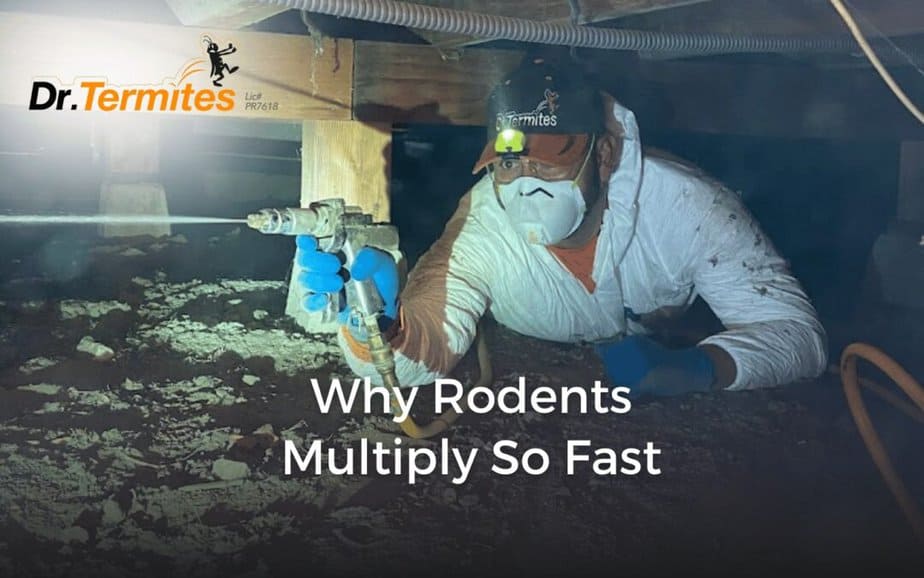
by pestcontrolseos | Dec 6, 2024 | Blog, Pest Info & Articles
Rodents like rats and mice are known for being everywhere. If you see one, there are probably many more hiding nearby. But why do rodents multiply so fast? It comes down to their biology and natural habits. By understanding the reasons behind their rapid growth, it becomes easier to manage their populations. In this article, we will explore why rodents breed quickly and how they maintain such large numbers.

The Biology of Rodent Reproduction
High Birth Rates
Rodents have very high birth rates. Female rats and mice start breeding young, often within weeks of being born. For example, mice can breed by six weeks old and continue frequently throughout their lives. A female rat can give birth to 12 babies every three weeks, leading to dozens of offspring within a few months, driving rapid population growth.
Short Gestation Period
Rodents also have short gestation periods, meaning babies develop quickly. Mice are pregnant for about 20 days, while rats are pregnant for 21-23 days. This short cycle means new litters are born quickly, allowing populations to grow fast. In ideal conditions, their numbers can surge in just weeks.
Why Rodents Have High Reproductive Rates
Survival Instincts
Rodents are prey animals, which means that many other animals hunt them. Birds, snakes, and even pets like cats all see rodents as food. Because of this, rodents have evolved to have large families. Having many babies at once increases the chance that at least a few will survive even if others do not. The need to survive as a species is the driving force behind their rapid reproduction.
Rodents also grow quickly to maturity, which means they can start breeding sooner. The faster they mature, the sooner they can reproduce and keep their population strong. Their instinct to survive pushes them to breed as often as possible.
Adaptability
Rodents are extremely adaptable creatures. They can live in many different environments and eat almost anything. They make their nests in houses, barns, and even inside walls. They can find food in places that are difficult for other animals to access. This adaptability helps them grow their numbers, no matter the situation.
When rodents find food and a safe place to live, they settle down and start breeding. This adaptability helps them thrive even in environments that are challenging for other animals.
Rodent Myths and Misunderstandings
There are many myths about rodents and their ability to multiply. One common myth is that rats and mice only breed in dirty places. In truth, rodents will breed wherever they find food and shelter. A clean home is still attractive to rodents if they find food or a place to hide.
Another myth is that just removing visible food will control their numbers. Rodents are experts at finding hidden food sources, and even small crumbs are enough to keep them alive and breeding. The best way to deal with them is through professional rodent control, which can address the problem effectively and stop them from multiplying.
Factors That Help Rodents Multiply
Food Availability
Food is a key factor that helps rodents grow in number. They will eat almost anything and are very good at finding food. They can chew through packaging, eat crumbs, and even get into pet food. Rodents are more likely to breed and grow their numbers when food is easy to find.
Lack of Predators
In nature, rodents have many predators. However, the number of predators in urban and suburban areas is often low. Without many natural threats, rodents can breed freely and in large numbers. This is one reason why rodents can overpopulate in places like cities and farms where they do not have many enemies.
Ideal Nesting Places
Rodents need safe places to nest to raise their young. They find ideal nesting sites in homes or buildings like attics, basements, and even inside walls. These spots protect them from predators and weather, creating a safe environment for raising their young. The more nesting places they find, the faster their numbers grow.
Rapid Rodent Reproduction: Causes Behind Their Growth and How to Control It
Rodents multiply quickly because of their high birth rates, short gestation periods, and adaptability. They have evolved to breed quickly to ensure their survival, especially since they often prey on other animals. Factors such as easy access to food, few predators, and ideal nesting places allow them to thrive and grow in number.
To prevent a rodent infestation, it is important to address these factors. Removing food sources, sealing off nesting spots, and contacting professional rodent control are all effective steps to keep their numbers in check. Understanding why rodents multiply so quickly can help stop their spread before they become a major problem.
Ready to take control of your home? Dr. Termites offer expert rodent control services to protect your space from unwanted pests. Don’t let rodents multiply—call Dr. Termites today for a safe, effective solution to keep your home rodent-free!
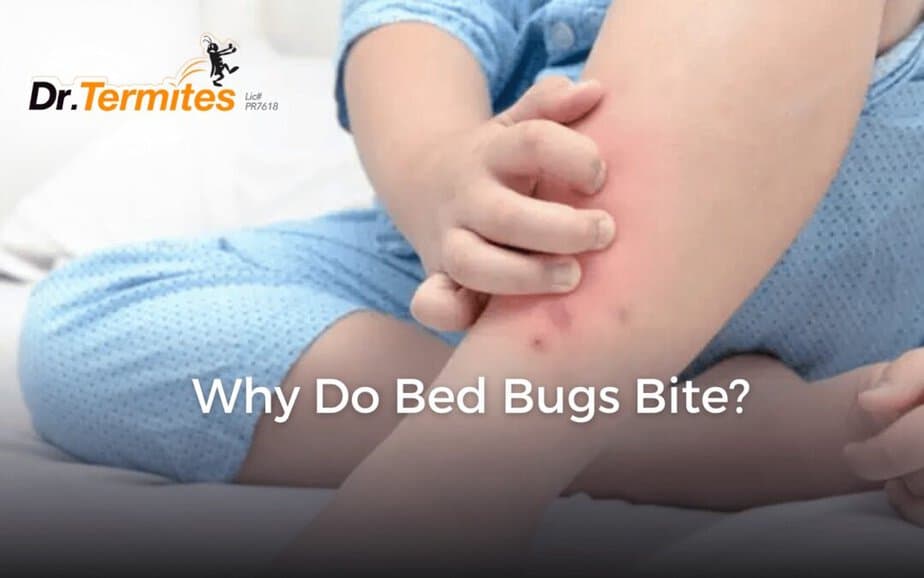
by pestcontrolseos | Dec 1, 2024 | Blog, Pest Info & Articles
Bed bugs are small insects that often cause frustration for people dealing with them. They feed on human blood, which is the main reason they bite. These pests can be problematic to notice initially, but their bites can lead to discomfort. This blog post will explain why bed bugs bite, their habits, and how to prevent them.
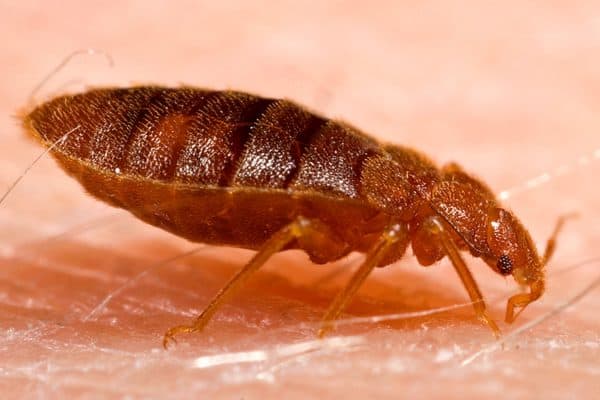
What Are Bed Bugs?
Bed bugs are tiny, flat insects that survive by feeding on the blood of humans and animals. They are brownish and about the size of an apple seed. Bed bugs do not fly but can quickly crawl across floors, walls, and ceilings. These pests are often found in mattresses, box springs, and bed frames because they like to be close to their food source.
Why Do Bed Bugs Feed on Blood?
Blood is the primary food source for bed bugs. They bite because they need blood to survive and reproduce. Female bed bugs require blood meals to lay eggs. Bed bugs cannot live long without feeding, so they actively seek out sleeping humans to feed on.
When Do Bed Bugs Bite?
Bed bugs are nocturnal, meaning they are most active at night. They usually bite while people are sleeping because this is when they can feed without being noticed. The insects are drawn to body heat and carbon dioxide, which humans exhale while breathing. Once they find a host, they use their mouthparts to pierce the skin and draw blood.
What Happens During a Bite?
When a bed bug bites, it injects saliva into the skin. This saliva contains an anesthetic that prevents the person from feeling the bite immediately. It also has an anticoagulant to keep the blood flowing. After feeding for a few minutes, the bed bug retreats to its hiding place.
Where Do Bed Bugs Hide?
Bed bugs are excellent at hiding, which makes them difficult to detect. They prefer cracks and crevices near where people sleep. Common hiding spots include mattress seams, headboards, and furniture. Learning how to spot bed bugs early can prevent a full-blown infestation. Look for dark spots, eggs, or the bugs themselves in their favorite hiding areas.
Signs of Bed Bug Bites
Bed bug bites often appear as small, red, and itchy bumps. They are usually found in clusters or straight lines on the arms, legs, neck, and back. Some people may not react to the bites, while others might experience significant irritation.
How to Prevent Bed Bug Bites
Preventing bed bug bites starts with keeping them out of your home. Contact bed bug control experts to assess the situation if you suspect an infestation. Here are some steps to prevent bed bugs:
Inspect Second-Hand Furniture
Used furniture can sometimes bring bed bugs into your home. Before bringing in any second-hand items, carefully check them for signs of bed bugs. Look at seams, cracks, and joints for evidence of these pests.
Wash Bedding and Clothes Regularly
Frequent washing and drying of bedding and clothes at high temperatures can kill bed bugs. Use the hottest settings on your washer and dryer to ensure any bugs or eggs are eliminated.
Seal Cracks and Crevices
Bed bugs love to hide in small spaces. Seal any cracks or gaps in walls, furniture, or floors to reduce their hiding spots. Vacuum your home regularly, paying special attention to bedrooms and sleeping areas.
When to Call for Professional Help
If prevention methods do not work and the infestation worsens, it is time to contact a professional bed bug control service. Professionals use effective treatments to eliminate bed bugs and prevent them from returning.
Why Are Bed Bugs So Persistent?
Bed bugs are hard to get rid of because they reproduce quickly and can go months without feeding. They are also resistant to many common insecticides. Their small size allows them to hide in places that are hard to reach. This persistence makes dealing with an infestation especially challenging.
How to Protect Yourself While Traveling
Traveling can expose you to bed bugs, especially in hotels or shared accommodations. To protect yourself:
- Inspect the mattress, bed frame, and headboard for signs of bed bugs.
- Keep your luggage off the floor and bed.
- Use luggage liners or seal your bags in plastic during your stay.
- Wash and dry your clothes immediately upon returning home.
Understanding Why Bed Bugs Bite and How to Address Them Effectively
Bed bugs bite because they need blood to survive and reproduce. These pests are most active at night, making them difficult to notice. Preventing bites involves regular cleaning, inspecting furniture, and sealing cracks in your home. If the problem persists, seek help from bed bug control experts. Early action and proper precautions can protect you from the discomfort caused by these pests.
Take control of your home with Dr. Termites! Our expert team provides safe, reliable solutions to eliminate bed bugs and pests permanently. Don’t let them disrupt your peace—call Dr. Termites today and reclaim your comfort!

by pestcontrolseos | Nov 24, 2024 | Blog, Pest Info & Articles
Termites can cause significant damage to homes, often going unnoticed until the damage becomes severe. While traditional treatments often use harsh chemicals, orange oil offers a natural and effective alternative. Derived from orange peels, this oil has gained popularity for its ability to handle termite infestations without introducing harmful toxins into your home. But how does it work? Let’s break down why orange oil is an effective tool against termites and whether it can address other pest issues.

What Makes Orange Oil Work Against Termites?
Orange oil contains a compound called d-limonene, which is extracted from the rinds of oranges. D-limonene is a powerful substance that has proven effective in killing termites on contact. It works by breaking down the exoskeletons of termites and disrupting their respiratory system, leading to their death.
Unlike many chemical treatments, orange oil targets termites without lingering toxins in the environment. This makes it a safe choice for homeowners who want a safe and effective solution for termite problems.
How Orange Oil Targets Termites Directly
When applied to termite-infested wood, orange oil penetrates deep into the wood fibers. This allows it to reach termites hidden within the structure. Once termites come into contact with the oil, it begins to destroy their systems almost immediately.
Orange oil is particularly effective in localized treatments. If termites are detected in a specific area, this oil can eliminate them without requiring extensive application. However, it’s worth noting that orange oil may not be sufficient for widespread infestations that have spread throughout a structure.
Benefits of Using Orange Oil for Termite Control
There are several advantages to choosing orange oil for termite treatment:
1. Natural and Non-Toxic
One of the biggest benefits is its non-toxic nature. Orange oil is derived from natural sources, making it safe for use around pets and children. Unlike chemical treatments, it doesn’t leave behind harmful residues.
2. Eco-Friendly Solution
Because it’s plant-based, orange oil is a sustainable option for controlling termites. It minimizes environmental impact while still providing effective results.
3. Localized Effectiveness
Orange oil treatment works well for spot treatments where termites are concentrated. It can be directly applied to the infested wood, making it a targeted solution.
4. Cost-Effective
Compared to more invasive termite control methods, orange oil treatments can be more affordable. This makes it an attractive option for homeowners seeking effective pest control without breaking the bank.
Can Orange Oil Kill Other Pests?
While orange oil is primarily known for its effectiveness against termites, it can also affect other pests. The same d-limonene compound that disrupts termites can harm certain other insects, such as ants. However, its effectiveness against a broader range of pests depends on the specific species and their biology.
For instance, while it can help with minor termite and ant infestation, it may not be as effective against larger or more resilient pests like cockroaches or rodents. Orange oil is best suited for targeted applications rather than general pest control.
How Does Orange Oil Compare to Other Termite Treatments?
When considering orange oil, it’s essential to compare it with other termite treatments to decide whether it’s the best fit for your situation.
Chemical Treatments
Traditional chemical treatments often involve applying synthetic pesticides that create a barrier around the home. These treatments can be effective for large-scale infestations but often come with health and environmental risks.
Baiting Systems
Baiting systems rely on attracting termites to poison-laced bait stations. While effective over time, this method can take weeks or months to show results. Orange oil, by contrast, works immediately upon contact.
Heat Treatments
Heat treatments involve raising the temperature in an infested area to a level that kills termites. While this method is non-toxic, it requires professional equipment and may not be practical for all homes.
Is Orange Oil Right for Your Home?
Deciding whether to use orange oil depends on the nature and extent of your termite problem. Orange oil can be highly effective if you have a localized infestation and want a natural solution. However, for larger infestations, professional treatments may be necessary to eliminate all termites.
It’s always a good idea to consult with a pest control expert to assess the severity of the infestation and recommend the most suitable treatment options for your home.
Revolutionizing Termite Control Through Orange Oil
Orange oil is a powerful, natural option for managing termite infestations. Its effectiveness comes from its active ingredient, d-limonene, which disrupts termites on contact. While it’s best suited for localized infestations, it offers a safe and environment-conscious alternative to harsh chemicals. Additionally, orange oil may help with certain other pests, but its primary strength lies in targeting termites. Orange oil is a promising solution for homeowners seeking a natural termite control method.
Protect your home from termite damage with Dr. Termites! Our expert team uses safe and effective solutions, including orange oil treatments, to eliminate termites quickly. Call Dr. Termites today for reliable pest control you can trust!
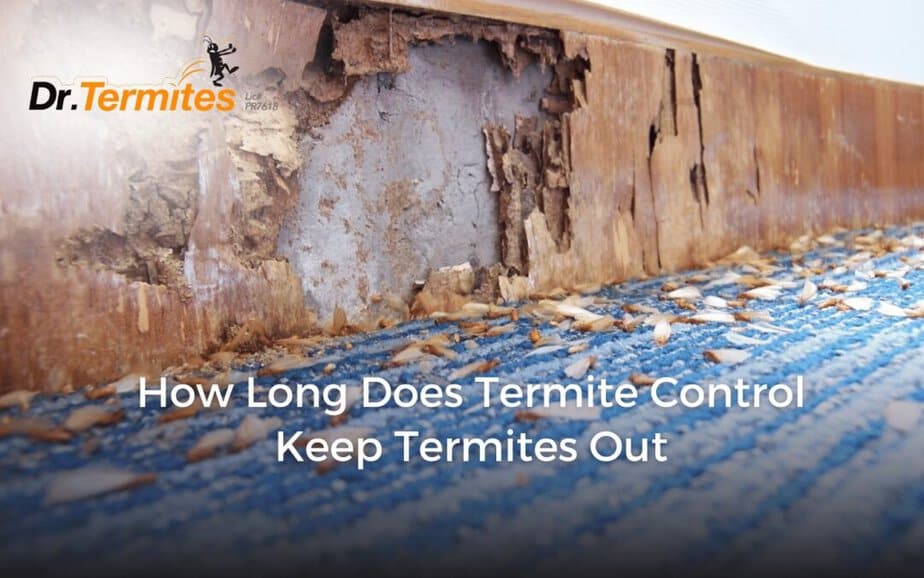
by pestcontrolseos | Nov 13, 2024 | Blog, Pest Info & Articles
Termite management is essential to preserving your home’s structural integrity and safety. These little insects have the potential to wreak a great deal of harm, but they are frequently overlooked until serious harm has been done. Termites have the ability to discreetly infiltrate buildings, feed on wood, and jeopardize their structural stability. In addition to eliminating existing infestations, efficient termite control also helps avoid recurrence. How long these treatments can keep termites away is a question that many homeowners have. To guarantee a termite-free environment, it is crucial to comprehend the efficacy and duration of termite treatment.
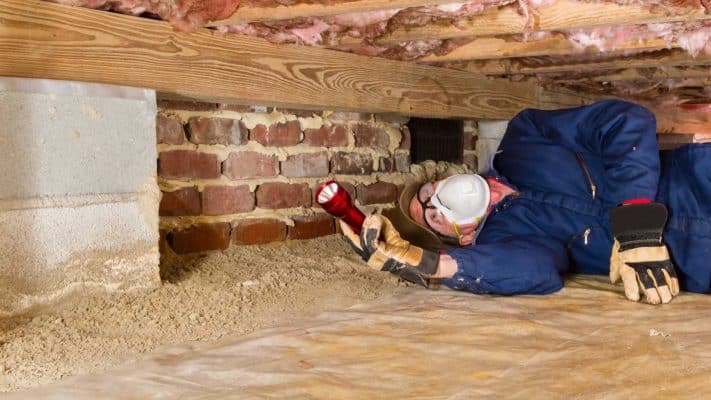
Essential Guide to Termite Management
What is Termite Control?
Termite control is the process of removing termites from a property and keeping them from coming back using a variety of methods and treatments. This procedure usually starts with a thorough examination conducted by a professional termite control specialist. After determining the existence and severity of any termite infestation, these experts suggest a personalized treatment strategy. Several techniques intended to successfully eliminate termites and shield the building from future invasions may be included in this approach.
Why is Termite Control Important?
Termites are dangerous because, typically going undetected until it is too late, they can seriously destroy a building’s structure. They use wood, which can erode the overall stability and foundation of residential and commercial structures. The expenses incurred in fixing damage might mount up over time. Maintaining the safety and value of your property while avoiding these expensive repairs depends on effective termite management. You may safeguard your house and save yourself the trouble and cost of repairs by making an investment in preventive measures.
How Long Does Termite Control Last?
Factors Affecting Duration
The duration of termite control effectiveness can vary due to several factors. The species of termites present, environmental conditions, and the specific treatment method used all play a part in how long protection lasts. Proper application and regular maintenance are critical for extending the lifespan of these treatments. Additionally, the severity of the infestation at the time of treatment can influence how long the control measures remain effective. A well-executed treatment plan can provide protection for several years, although external factors can alter this timeline.
Types of Termite Treatments
There are several types of termite treatments, each with varying durations of effectiveness. Liquid soil treatments, which create a chemical barrier, can last for several years, often up to five, depending on the product and soil conditions. Bait stations, another common method, require regular monitoring and maintenance but can deliver continuous protection if managed properly. Advances in technology have also improved the efficiency and longevity of these treatments, ensuring better protection against termites.
Signs You Need a New Treatment
Visible Termite Activity
One of the most apparent signs that you may need a new termite treatment is visible termite activity. This can include seeing live termites, mud tubes along walls or foundations, or discarded wings near windows and doors. These indicators suggest that termites have breached previous control measures and are actively infesting your property once again.
Structural Changes in Your Home
Noticeable changes in your home’s structure can also signal a termite problem. This might include sagging floors, hollow-sounding wood, or small holes in drywall or wooden surfaces. Such changes often indicate that termites are consuming the wooden structures within your home, necessitating immediate action to prevent further damage.
Maintaining Termite Control
Regular Inspections
Regular inspections by a professional termite control service are vital for maintaining effective protection. These inspections can help detect any new termite activity early and ensure existing treatments remain effective. Scheduling annual inspections, or as recommended by your pest control provider, can help identify potential problems before they become severe.
Preventive Measures
Aside from professional inspections, homeowners can implement preventive measures to reduce the risk of termite infestations. This includes minimizing wood-to-soil contact around the home, ensuring proper drainage to keep the foundation dry, and removing wood debris or stacks from near the house. These steps can enhance the effectiveness of professional termite control treatments, extending the protection for your home.
Essential Strategies for Long-Term Termite Protection in Your Home
Maintaining effective termite control is essential for protecting your home from these destructive pests. The duration of termite control can vary due to a range of factors, but with proper maintenance and regular inspections, homeowners can ensure enduring protection. By recognizing the signs of an infestation early and implementing preventive measures, you can safeguard your home from termite damage. Investing in professional termite control is a critical step in maintaining the structural integrity and value of your property. By staying vigilant and proactive, you can keep termites at bay and ensure your home remains secure for years to come.
Ready to shield your home against termites? Dr. Termites is here to help! Our expert team provides top-notch termite control solutions designed to keep your property safe and secure. Don’t wait for the damage to happen. Contact Dr. Termites today and ensure your home’s protection for years to come!








































